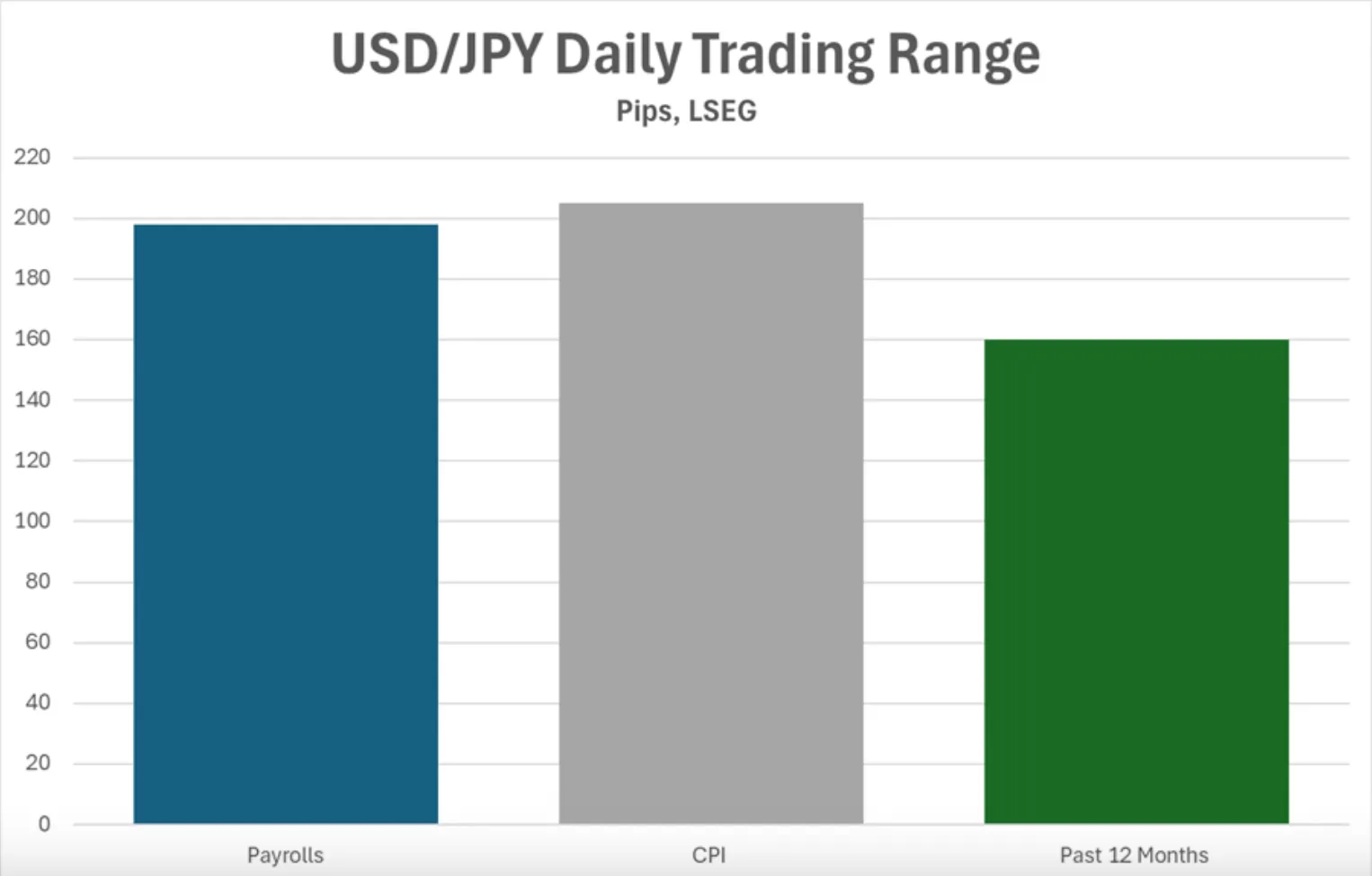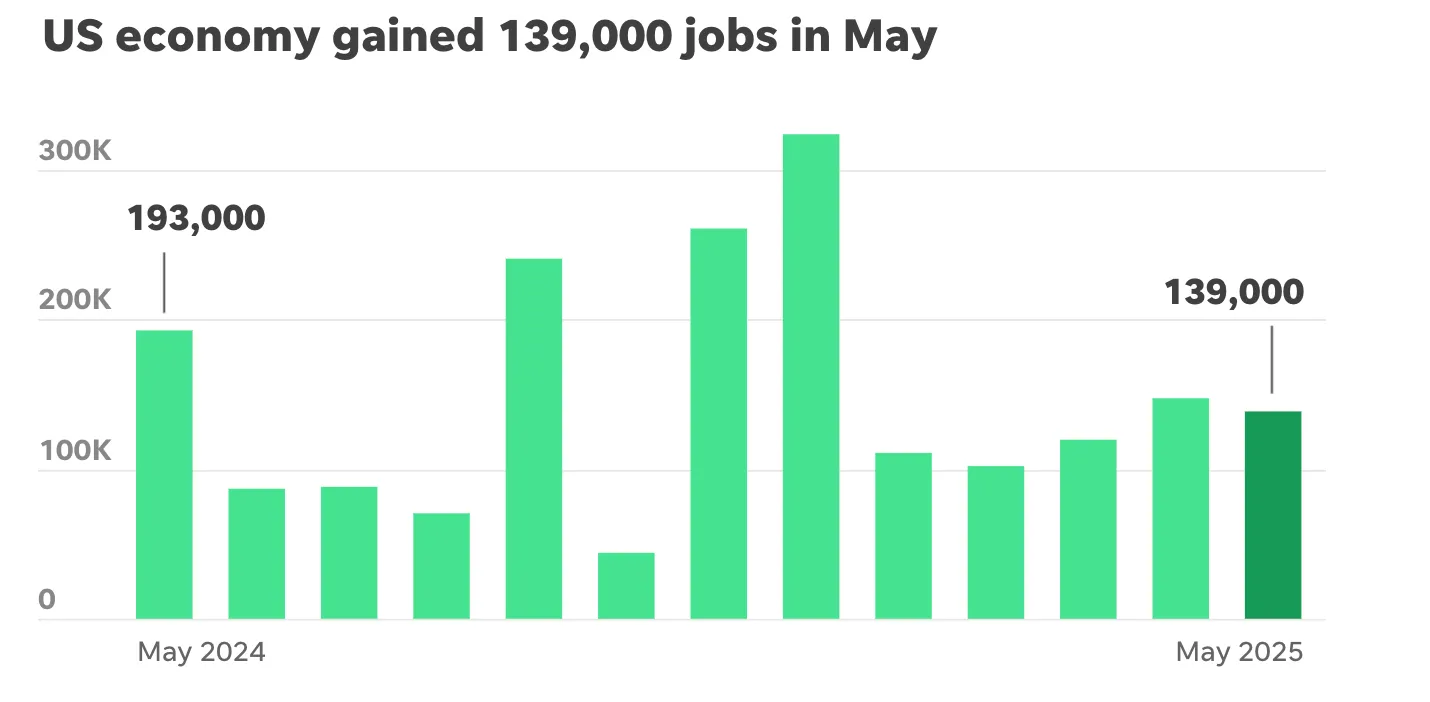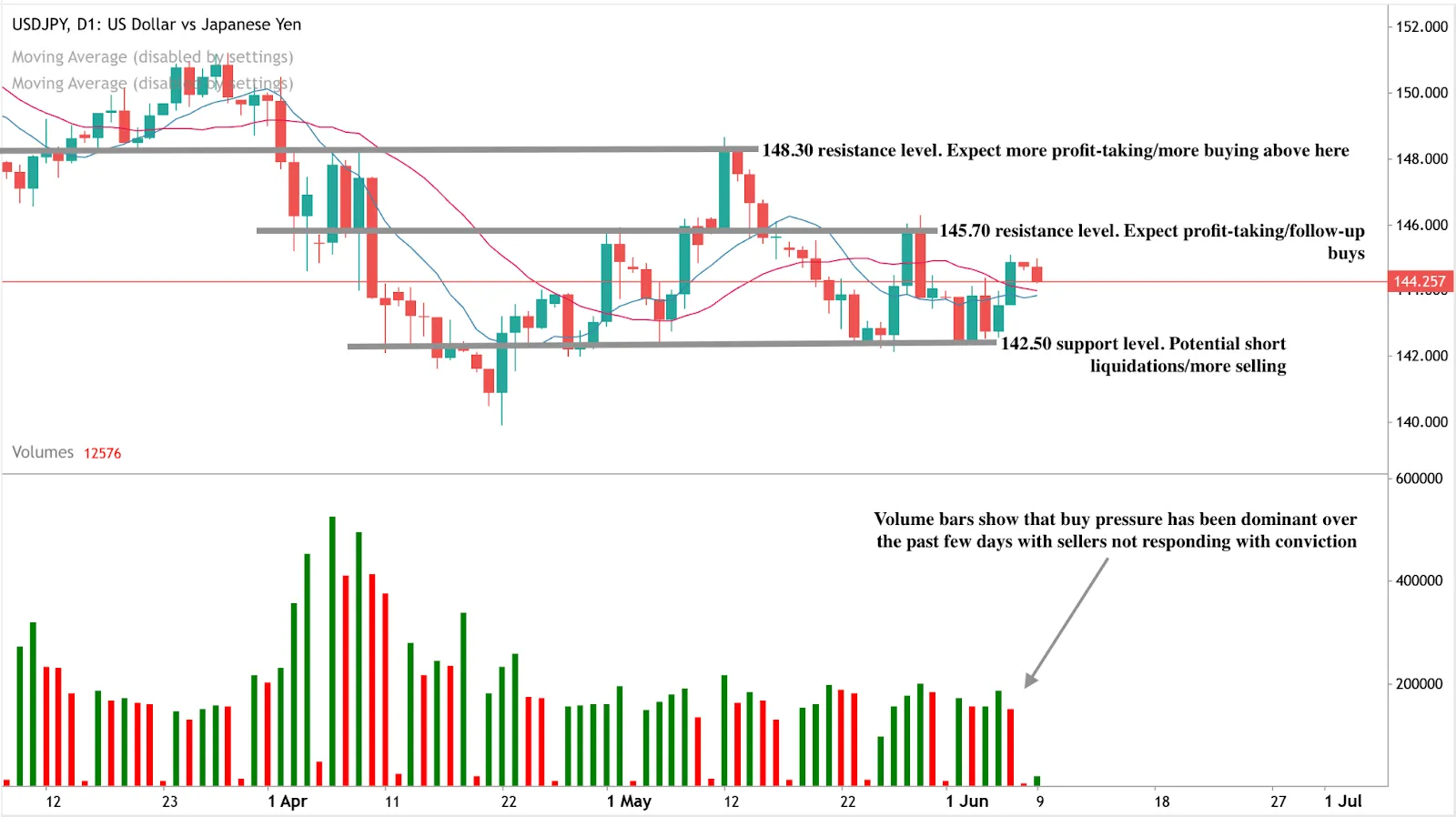USD/JPY analysis suggests the currency pair could be bracing for impact this week
.webp)
The surface looks calm, but history suggests the storm is coming. USD/JPY has been stuck in a narrow range, but with US inflation data and jobless claims on deck, both proven volatility triggers, that stability may not last. Add in Japan’s surprise GDP revision, growing rate hike bets from the BoJ, and high-stakes US-China trade talks, and you’ve got a perfect setup for a breakout. Traders may be holding their breath now, but the next move could be anything but quiet.
CPI risk: Data-driven drama incoming
Let’s start with the facts. Over the past year, USD/JPY has had an average daily trading range of around 160 pips. But on days when US Nonfarm Payrolls (NFP) or CPI figures are released, that number jumps significantly - up to 198 pips and 205 pips, respectively. In other words, when the data hits, the pair moves.

This week, traders are eyeing US CPI and jobless claims, both of which are known catalysts. If either print surprises, and let’s face it, they often do, we could see USD/JPY break decisively out of its recent rut.
Dollar strength and USD outlook skepticism
You’d think the US Dollar might have more momentum behind it, especially after last Friday’s stronger-than-expected jobs data. The US economy added 139K jobs in May, beating forecasts, while wages held steady at 3.9%, and unemployment stuck at 4.2%. Solid stuff, right?

But even with the data on its side, the greenback isn’t exactly charging ahead. That’s likely because the market remains deeply skeptical about the US outlook, with growing uncertainty around Fed policy, politics, and trade tensions keeping investors cautious.
Japanese Yen outlook: A quiet power play
Meanwhile, the Japanese Yen has been quietly staging a comeback - and not just because of dollar softness. The real boost came from Japan’s Q1 GDP revision. Instead of the originally reported 0.2% contraction, the revised figure showed flat growth.
Annualised contraction was also revised from -0.7% to just -0.2%, while private consumption even ticked up 0.1%.

For the Bank of Japan, this is a green light. With inflation already broadening, this stronger data gives the BoJ more room to raise interest rates, further supporting the Yen. That’s why the currency has snapped its recent losing streak and held firm against a broadly weaker dollar.
Geopolitics, tariffs, and trade talks
Still not convinced volatility’s coming? Let’s throw in some geopolitical spice.
Top US and Chinese officials are meeting in London this week for high-stakes trade talks, hoping to cool tensions after months of escalating disputes. Traders aren’t taking any chances - risk appetite is thin, and safe havens like the Yen could be the go-to if talks falter.
And then there’s the ECB drama. Board member Isabel Schnabel says inflation is near target and that rates are now in “neutral territory.” It’s a similar tone from ECB President Lagarde - the easing cycle may be wrapping up. That should be good news for the euro, but ECB policymaker Yannis Stournaras threw a spanner in the works, warning that potential US tariffs could derail eurozone growth.
USD/JPY technical analysis: What happens next?
With all these forces in play, markets are coiled tight. If US data disappoints or trade talks break down, the Yen could surge and USD/JPY may resume its bearish trajectory. But if CPI surprises to the upside, Fed rate cuts could get pushed back, giving the Dollar a reason to rebound. Either way, the days of rangebound yawns in USD/JPY may be numbered.
At the time of writing, the currency pair is edging downwards as the Yen strengthens, within a sell zone - hinting that we could see more downward movement. However, the volume bars show little sell pressure and dominant buy pressure - suggesting that an uptick could be on the cards.
If sellers prevail, prices could find a support floor at the $142.50 price level. Conversely, if we see an uptick, prices could encounter resistance walls at the $145.70 and $148.30 resistance levels.

Disclaimer:
The information contained within this blog article is for educational purposes only and is not intended as financial or investment advice. The information may become outdated. We recommend you do your own research before making any trading decisions. The performance figures quoted are not a guarantee of future performance.



